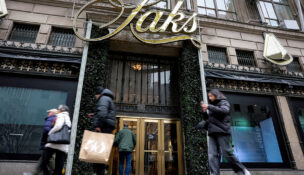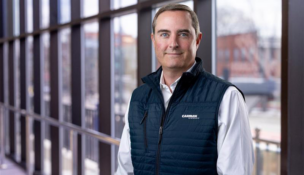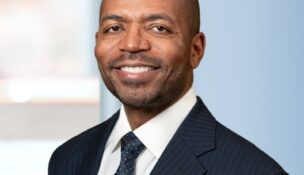Falwell agrees to immediate indefinite leave of absence from Liberty
Liberty's board of trustees asked Falwell to take leave
Kate Andrews //August 7, 2020//
Falwell agrees to immediate indefinite leave of absence from Liberty
Liberty's board of trustees asked Falwell to take leave
Kate Andrews //August 7, 2020//
UPDATE: Board of Trustees Chairman Jerry Prevo has been appointed acting president during Falwell’s absence.
Liberty University President and Chancellor Jerry Falwell Jr. has agreed to immediately take an indefinite leave of absence from both leadership roles at the private Christian institution in Lynchburg, at the request of the university’s board of trustees Friday.
According to a news release from the university, the executive committee, acting on behalf of the board, made the request. Falwell has been caught up in a series of controversies this year — from inviting students back to campus as many colleges were closing to limit spread of the coronavirus, to posting an embarrassing photo briefly on Instagram before taking it down. In between, the university and its president came under heavy criticism for creating what some view as a hostile environment for Black students and staff members.
Falwell makes about $1 million a year as the university’s president and chancellor.
In a statement Friday night, Liberty Board of Trustees Chairman Jerry Prevo, a retired evangelical pastor who oversaw a Baptist church in Anchorage, Alaska, said that the university has “experienced unprecedented success” under Falwell’s watch, while adding, “Unfortunately, with this success and the burdens of leading a large and growing organization comes substantial pressure. Today, my colleagues and I on the Liberty University Board of Trustees and Jerry mutually agreed that it would be good for him to take an indefinite leave of absence. This was a decision that was not made lightly, and which factored the interests and concerns of everyone in the LU community, including students, parents, alumni, faculty, staff, leaders of the church, as well as the Falwell family.”
The statement concludes with a request that “our entire community lift him up in prayer so he may be able to fulfill God’s purpose for him and for Liberty University.”
Prevo’s statement does not address who will step into Liberty’s presidency or the specific reason the board asked Falwell to step away after 13 years as president of the university.
Falwell is part of the six-person executive committee, which is chaired by Harvey Gainey, founder and former owner of the Michigan-based trucking company Gainey Corp. and a longtime friend of the Falwell family. Other members include Lynchburg businessman Carroll Hudson, CEO of England’s Stove Works Inc.; Alexandria-based Baptist pastor David Rhodenhizer; Gilbert “Bud” Tinney Jr., another Michigan-based businessman; and Prevo.
Falwell’s leave comes after a series of controversies this year involving race and COVID-19. And this week, Falwell posted and quickly took down an Instagram photo of him next to a woman, with both of their pants unzipped and their stomachs sticking out. In the photo, Falwell held a glass containing a dark liquid. (Falwell wrote in his post that the drink was “black water” and “a prop.”) He said the picture — taken during a party held recently on a yacht — was a joke, and said during an interview with Lynchburg radio station WLNI that the woman was his wife’s assistant. In the interview, he also said he had promised his children, “I’m going to try to be a good boy from here on out.”
As some students noted in comments on social media, the president was breaking Liberty’s strict code of conduct, which emphasizes modest and appropriate dress, including one-piece bathing suits for women.
The Instagram post was a step too far for many Christian conservatives, and some called for Falwell to resign in recent days, including a former Liberty instructor, U.S. Rep. Mark Walker of North Carolina.
The incident capped off weeks of high-profile transfers and resignations by Black employees and students at Liberty after Falwell tweeted an offensive image in May mocking Gov. Ralph Northam’s mask mandate. Falwell wrote that he would wear a mask only if it depicted the infamous blackface photo from Northam’s medical school yearbook, accompanied by the image. He deleted the tweet and apologized, but it was too little too late for some members of the Liberty community.
Among the fallout was the public resignation of Liberty’s director of diversity retention, LeeQuan McLaurin, a 2013 Black alumnus who wrote in his resignation letter that he felt it was “morally unconscionable” to remain at the university and ask students of color to stay at a place “that not only does not value their well-being and lives, but actually perpetuates very real and damaging racial trauma against them.” Two football players and a women’s basketball standout also announced they planned to transfer, referring to “racial insensitivities” and uncomfortable moments in class and on campus.
Earlier in the week, Liberty announced it had hired its former football coach, Turner Gill, and 1986 alumnus and former NFL player Kelvin Edwards as executive vice presidents, who both would be part of an effort to expand diversity at the university. According to Ronald Kennedy, Liberty’s executive vice president of enrollment management and marketing, 15.6% of all students enrolled in the 2018-19 academic year were African American, but only 5% of all new incoming residential undergraduates in 2019 were Black, down from 10% in 2007.
Falwell also received criticism from Northam and others earlier in the year for inviting students back to campus after spring break, when most other colleges nationwide were telling students to stay away in light of the COVID-19 pandemic. Recently, the university sued The New York Times for its articles on the university’s policies during the beginning of the coronavirus’ spread.
Falwell, who stepped into the leadership role held by his father, Jerry Falwell Sr., in 2007, has overseen gigantic growth of the university’s online enrollment, which surpassed 100,000 in 2019, in addition to its 15,500 residential students.
Never shy about taking controversial stances, Falwell polarized some at Liberty by throwing his support behind President Donald Trump during his 2016 campaign and then inviting him to speak at Liberty’s commencement ceremony in 2017. Falwell also sparked discussion in February when he and West Virginia Gov. Jim Justice, a Republican, half-jokingly encouraged Virginia counties to secede and join West Virginia if they were unhappy about proposed restrictions on gun ownership.
Referring to the movement as “Vexit,” Falwell seized on a moment when many county boards and city councils in the state were hearing from residents concerned about losing Second Amendment rights, after Democrats took control of the Virginia House of Delegates and the state Senate for the first time in 30 years and promised to pass more stringent gun-control measures.
Falwell’s tenure at Liberty, which his televangelist father founded in 1971 as Lynchburg Baptist College, soon renamed Liberty Baptist College, also was marked by major financial growth and expansion. In September 2019, the university reported total assets of $3.13 billion. Its Rawlings School of Divinity is billed as the world’s largest school for religious studies and ministerial training. And, with more than 6,400 employees, Liberty is the largest employer in Lynchburg.
A graduate of the University of Virginia School of Law, Falwell previously worked as an attorney and the university’s general counsel, as well as a commercial real estate developer. He also served on the university’s Board of Trustees before his father’s death in 2007.
Virginia Business has contacted Falwell for comment but has not been able to reach him as of Friday evening.
i



















